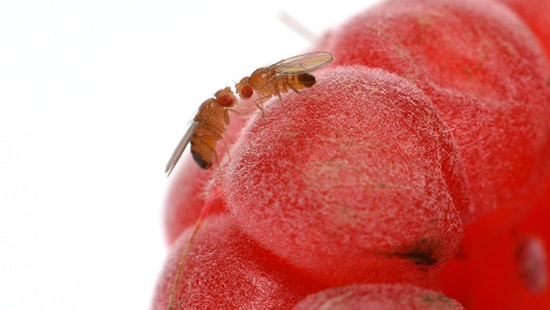Fly Control and Prevention

Since large and small flies are an indicator of a sanitation or structural problem within your facility, removal of the breeding source is the only permanent means of avoiding an infestation. An outside-in approach is a proven strategy for commercial fly control, and there are also steps you can take to avoid an infestation.
Restaurant Checklist for Fly Control
- Inspect incoming fruits and vegetables for signs of rot and small flies and cover them upon receipt.
- Store produce under refrigeration when possible or in sealable plastic tubs.
- Rinse out empty bottles and cans, and clean garbage containers daily. Use plastic liners.
- Eliminate spillage of garbage and keep garbage areas clean and away from the building, when possible, close receptacles with tight-fitting covers.
- Keep the exterior dumpster pad free of spillage and debris.
- Repair areas damaged by water.
- Eliminate standing water, weeds, tall grass, and other excessive vegetation near the facility.
- Clear clutter and items stored on the ground.
- Inspect and seal doors and keep them in good condition. Keep doors closed or use double-door vestibules, air doors, or plastic strip doors where needed.
- Install 20-mesh screens on open windows where possible.
- Eliminate interior standing water and accumulated condensation and use fans in areas conducive to standing water.
- Replace cracked floor tiles and missing grout, and repair plumbing and drain problems.
- Regularly inspect for and repair cracks in flooring to prevent seepage below.
You're not on site 24/7, so be sure that the people who are in the facility know how to help prevent flies. Train your staff to:
- Clean and sanitize floors and around drains, disposals, and sinks daily:
- Inspect and sweep thoroughly under appliances, counters and cook lines.
- Scrub floors using a stiff brush with an industrial floor cleaner. Squeegee all debris and dispose of in the trash; do not dispose of organic debris in drains.
- Mop the floor using an AMM Biocide registered sanitizer approved for food and non-food surface application. - Maintain drains:
- Clean drains and traps weekly using an industrial drain cleaner and a stiff long-handled brush.
- Use a “snake” device in clogged drains to clean out all gelatinous material. - Dispose of rotting organic matter.
- Perform periodic deep cleaning beneath plumbing lines and equipment.
- Clean rags and mop heads daily and before storing.
Depending on the types of flies that are present, different actions may be required to solve the situation/problem. Learn more about common types of small flies, facts about large flies, and the food-safety risks of large flies. If flies persist after a thorough cleaning, Ecolab is ready to help with treatment and ongoing protection.




